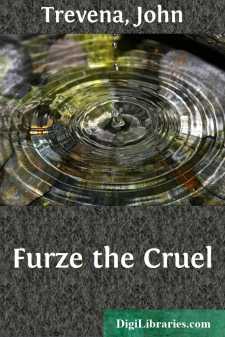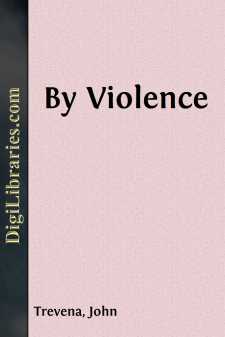Categories
- Antiques & Collectibles 13
- Architecture 36
- Art 48
- Bibles 22
- Biography & Autobiography 813
- Body, Mind & Spirit 142
- Business & Economics 28
- Children's Books 17
- Children's Fiction 14
- Computers 4
- Cooking 94
- Crafts & Hobbies 4
- Drama 346
- Education 46
- Family & Relationships 57
- Fiction 11829
- Games 19
- Gardening 17
- Health & Fitness 34
- History 1377
- House & Home 1
- Humor 147
- Juvenile Fiction 1873
- Juvenile Nonfiction 202
- Language Arts & Disciplines 88
- Law 16
- Literary Collections 686
- Literary Criticism 179
- Mathematics 13
- Medical 41
- Music 40
- Nature 179
- Non-Classifiable 1768
- Performing Arts 7
- Periodicals 1453
- Philosophy 64
- Photography 2
- Poetry 896
- Political Science 203
- Psychology 42
- Reference 154
- Religion 513
- Science 126
- Self-Help 84
- Social Science 81
- Sports & Recreation 34
- Study Aids 3
- Technology & Engineering 59
- Transportation 23
- Travel 463
- True Crime 29
Furze the Cruel
by: John Trevena
Description:
Excerpt
ABOUT RAINDROPS
The river of Tavy is a great mountain-carver. From its mud-holes of Cranmere to the walls of Tavistock it is a hewer of rocks. Thenceforth it becomes a gardener, raising flowers and herbs; it becomes idyllic. It goes into Arcadia. And at last it floats ships of war.
There is a story in Hebrew literature of a king called Solomon, a man reputed wise, although a fool with women, who desired to build a temple to his God. There was a tradition which forbade the use of hammer or chisel in the erection of a place of worship, because, according to the Mischna, "Iron is used to shorten life, the altar to prolong it." The stones were not to be hewn. The temple was to be built noiselessly. The narrative suggests that Solomon had the stones cut and shaped at some distance from the building site, which was a decidedly Jesuitical way of solving the problem. Myth suggests that the king sought the aid of Asmodeus, chief of the devils, who told him where he could discover a worm which would split the toughest rock. The introduction of the devil to assist in the building of the temple was no doubt of Persian origin, since Persian thought influenced Hebrew literature just as Grecian thought was later to influence that of Rome. The idea of noiseless building, of an altar created by supernatural powers, of burrowing for minerals and metals without tools, is common to the literature of every country. It is one of the stock tales of folk-lore found everywhere. In one place it is a worm which shatters the mountains; in another a black stone; and in another a herb, such as the innocent forget-me-not, and the various saxifrages of the cottage garden. All the stories agree upon three points: the name of the rock-shatterer signifies irresistible force; it is invariably a small and insignificant object; and it is brought to mankind by a bird. That bird is the cloud; and the worm, pebble, or herb, which shatters mountains is the raindrop.
This is the story of the river Tavy, its tors and cleave, just as the pixy grandmother told it to the little round-eyed ones on a stormy night, when the black-winged raven-cloud was bringing the rain over Great Kneeset, and the whist hounds were yip-yip-yipping upon the "deads"â
"It all happened a long time ago, my impets, a very long time ago, and perhaps I shan't be telling you the story quite right. They say the dates are cut upon the Scorhill Rocks. I couldn't make them out the last time I was there, but then my eyes are getting feeble. You know the Scorhill Rocks, my dears? They are just by the Wallabrook, and near our big dancing stone which the silly mortals call a tolmen. You remember how we danced there on All Hallows E'en. What a beautiful night it was, sure 'nuff! And then you went and pinched the farm maids in their beds, and made them dream of their lovers, mischievous young toads! Well, I don't blame ye, my dears. I liked a bit of a gambol when I was a winikin bit of a pisky maid myself.
"This old Dartymore was a gurt big solid mountain of granite in those days, my pretties....



